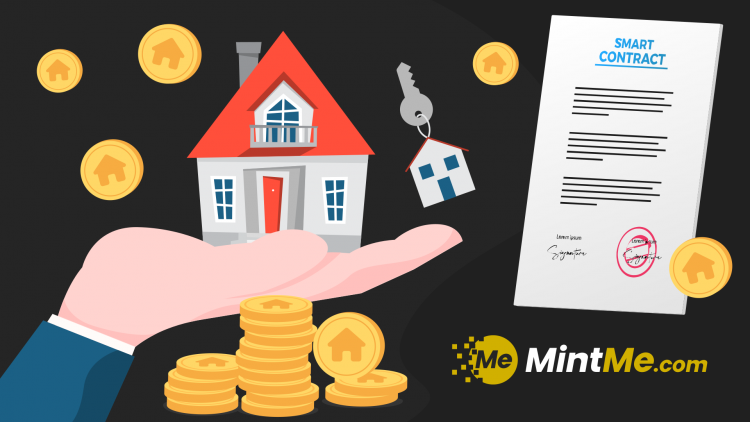Mintme News

Real estate investment has traditionally been the domain of the wealthy, as it requires large amounts of capital to acquire property assets. However, the emergence of blockchain technology and crypto crowdfunding is democratizing real estate investment by allowing anyone to invest in property assets, no matter how small their investment amount. This is thanks to the concept of tokenization, which allows for fractional ownership of assets, and has the potential to revolutionize the real estate industry.
Tokenization is the process of dividing a physical asset, such as a property, into smaller digital tokens that can be bought and sold on a blockchain-based platform. Each token represents a fractional ownership stake in the asset, and investors can purchase as many tokens as they want, depending on their budget. This means that investors can own a piece of high-value assets that they might not otherwise be able to afford, without having to go through the hassle of buying and maintaining physical property.
Crypto crowdfunding platforms that specialize in real estate tokenization are already disrupting the property investment landscape. These platforms typically allow investors to purchase tokens that represent ownership in a portfolio of properties, which are managed by a professional investment team. This approach offers several advantages over traditional property investment.
Firstly, it allows investors to diversify their real estate holdings. Rather than having all their capital tied up in a single property, investors can spread their investment across multiple properties, minimizing risk and increasing potential returns. Additionally, by pooling resources with other investors, they can access larger, more lucrative properties that they would not be able to purchase on their own.
Secondly, the use of blockchain technology provides transparency and security in real estate investments. Property ownership is recorded on a decentralized ledger, which eliminates the need for intermediaries such as lawyers or brokers. This reduces transaction costs and ensures that all parties have a clear record of ownership and investment activity.
Finally, tokenization enables real estate investment to be more liquid. Traditionally, buying and selling real estate assets can be a lengthy process, involving inspections, valuations, and other legal requirements. With tokenization, however, investors can buy and sell their tokens on a blockchain-based exchange, with the transaction settled within minutes. This provides investors with greater flexibility and control over their investments.
One of the primary benefits of tokenized real estate investments is the potential for greater returns. Traditional property investments can offer solid returns over the long term, but tokenized investments can offer a more immediate return on investment. For example, investors may receive rental income on a quarterly basis, or see their investment grow in value as the properties appreciate in the market. Additionally, because the investment is tokenized, investors can sell their tokens at any time, allowing them to realize their gains as they choose.
There are, however, some potential downsides to tokenized real estate investments. One of the biggest risks is the possibility of fraud or mismanagement by the investment team. It is important for investors to do their due diligence before investing, and to carefully review the investment strategy and management team. Additionally, because real estate investments can be subject to market fluctuations, there is always the possibility that the value of the investment could decline.
In conclusion, the tokenization of real estate assets has the potential to revolutionize the way that people invest in property. By offering fractional ownership of assets, it allows investors to diversify their holdings, access larger properties, and potentially earn greater returns. With the use of blockchain technology, it provides transparency and security, while also making real estate investment more liquid. As more investors become aware of the potential benefits of crypto crowdfunding, it is likely that the trend towards real estate tokenization will continue to grow.
Isaac Vitales